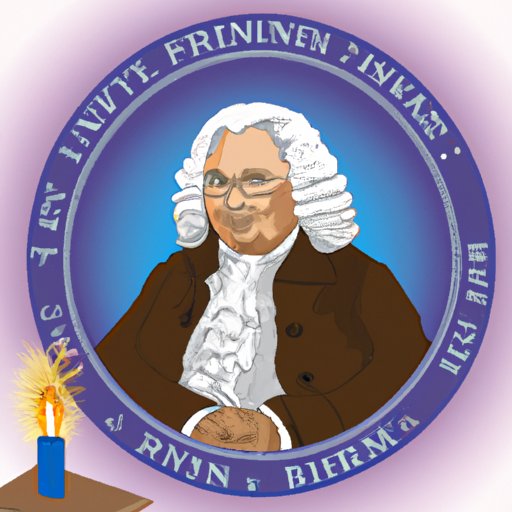Introduction
Benjamin Franklin is one of America’s most celebrated Founding Fathers, with a legacy that continues to this day. But did you know that he also played an important role in the discovery of electricity? This article will explore the contributions of Benjamin Franklin to the discovery and understanding of electricity, and how his experiments helped shape our current understanding of this powerful force.
Exploring Benjamin Franklin’s Role in the Discovery of Electricity
Benjamin Franklin was born in 1706 in Boston, Massachusetts. He was an avid reader, and had a keen interest in science and natural philosophy. He began experimenting with electricity in the 1740s, conducting various experiments to better understand the phenomena. His famous kite experiment in 1752 is perhaps his most well-known experiment, which demonstrated that lightning and electricity are the same phenomenon.
Franklin’s experiments with electricity were not only groundbreaking for their time, but also for the understanding of electricity today. For example, Franklin proposed the theory of positive and negative charges, which is still accepted today. He also discovered that electrical charge can be stored in a Leyden jar, which would later become the basis for modern capacitors. Franklin also invented the lightning rod, which could be used to protect buildings from lightning strikes.
In addition to his experiments, Franklin also published a book in 1751 called “Experiments and Observations on Electricity” which explored his experiments in greater detail. This book was hugely influential, and helped spread knowledge about electricity throughout Europe and the Americas.
The Legacy of Benjamin Franklin and His Contributions to the Study of Electricity
Benjamin Franklin’s contributions to the study of electricity have been immense. His experiments laid the foundation for the modern understanding of electricity, and his book helped spread knowledge about electricity throughout the world. He is also credited with inventing the lightning rod, which has saved countless lives and property over the centuries.
Franklin’s work also inspired others to further explore electricity. For example, Italian physicist Alessandro Volta built upon Franklin’s work to develop the first battery in 1800. This invention opened up a whole new area of research, with scientists using batteries to power a variety of devices. Franklin’s work was also used by Michael Faraday, who discovered electromagnetic induction in 1831.
A Closer Look at Benjamin Franklin’s Involvement in the Invention of Electricity
Though Benjamin Franklin did not actually invent electricity, his experiments and discoveries laid the groundwork for future generations to build upon. As stated by Dr. John Lienhard, professor emeritus of mechanical engineering and history at the University of Houston: “Franklin didn’t invent electricity, but he brought it down to earth—literally. He showed us the way to tame its awesome power.”
Franklin’s experiments provided valuable insight into the nature of electricity, and his book helped spread knowledge about electricity throughout the world. He is also credited with inventing the lightning rod, which has saved countless lives and property over the centuries. Finally, his work was instrumental in inspiring future generations of scientists to continue exploring the mysteries of electricity.
Conclusion
Benjamin Franklin was a Founding Father with a legacy that extends beyond politics. He was also a brilliant scientist who made significant contributions to the discovery and understanding of electricity. His experiments laid the foundation for the modern understanding of electricity, and his book helped spread knowledge about electricity throughout the world. He is also credited with inventing the lightning rod, which has saved countless lives and property over the centuries. Though he did not invent electricity, Benjamin Franklin’s contributions to the study of electricity have been immense.
(Note: Is this article not meeting your expectations? Do you have knowledge or insights to share? Unlock new opportunities and expand your reach by joining our authors team. Click Registration to join us and share your expertise with our readers.)
